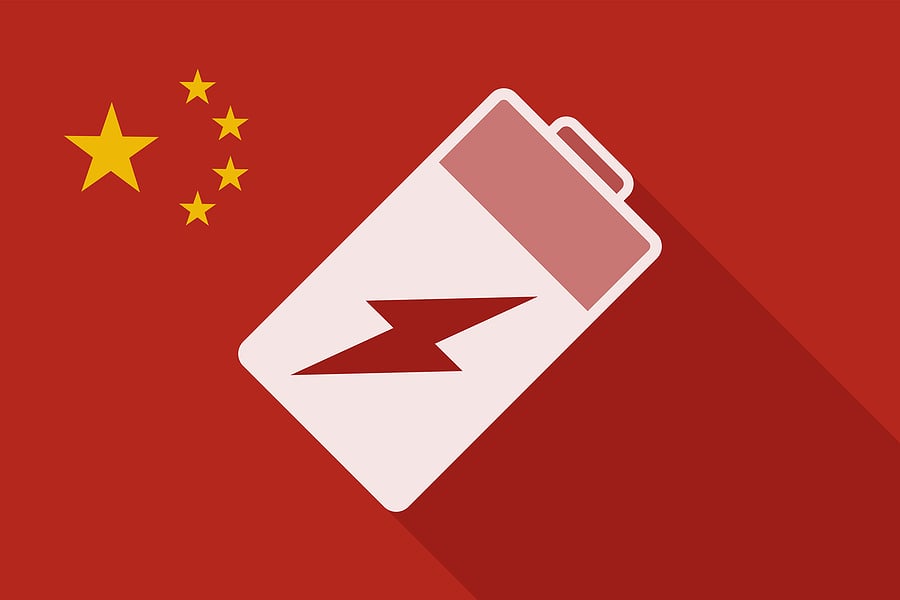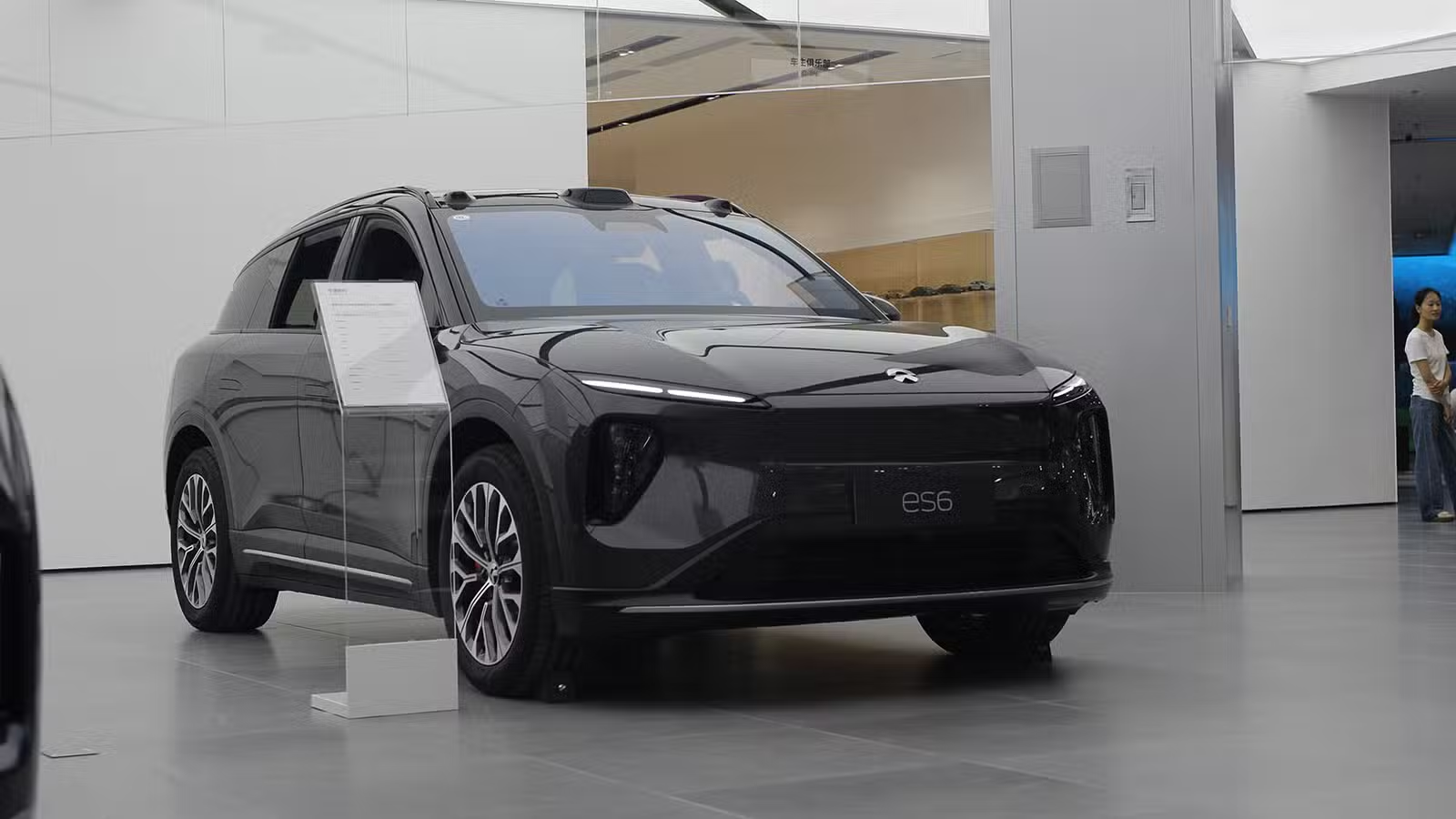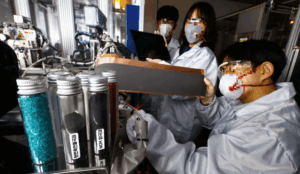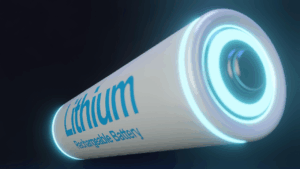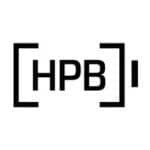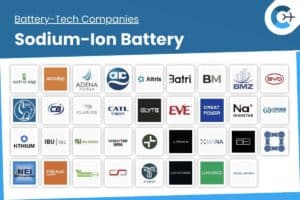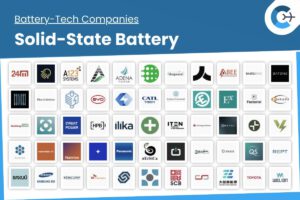China has reclaimed the top position in BloombergNEF’s annual Global Lithium-Ion Battery Supply Chain Ranking, overtaking Canada thanks to improvements in infrastructure and low commercial electricity prices. The 2024 assessment evaluates 30 countries on their ability to establish secure, reliable and sustainable battery supply chains. While Canada continues to excel in raw materials and maintain a stable investment climate, slower growth in battery manufacturing contributed to its drop to second place.
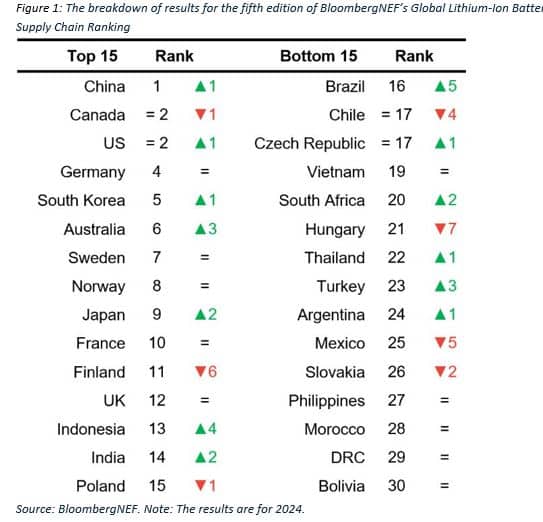
The United States shares second place with Canada, buoyed by incentives from the Inflation Reduction Act. However, recent tariffs and reduced climate commitments under the current administration may increase production costs for domestic manufacturers, shift investment to other regions and dampen domestic demand.
Emerging markets such as Brazil and Indonesia recorded the largest gains in this edition, driven by rising demand and clear policy roadmaps. BloombergNEF experts note that the impact of U.S. trade policies will be closely watched in the coming year. Established players Japan and South Korea also moved further into the top 10, leveraging their early investments in battery technologies to maintain or improve performance across supply chain metrics despite challenging global market conditions.
European countries showed mixed outcomes. Of the 11 nations ranked, only the Czech Republic and Turkey improved their standings, while five remained unchanged and four declined. Hungary and Finland experienced the steepest drops, hampered by weakening social and governance metrics in Hungary and sluggish cobalt and nickel industries and permitting delays in Finland. Delays at BASF’s battery component plant in Harjavalta underscore broader permitting challenges in the region.
Additional findings highlight several trends: Canada’s raw material sectors remain strong, but investment pauses have slowed manufacturing growth; Europe’s battery production capacity and demand scores are falling behind other regions; global raw material markets face oversupply and weak demand, though refined metal markets show mixed signals; and China continues to dominate refined material supply and battery manufacturing capacity globally.
Source: BloombergNEF

